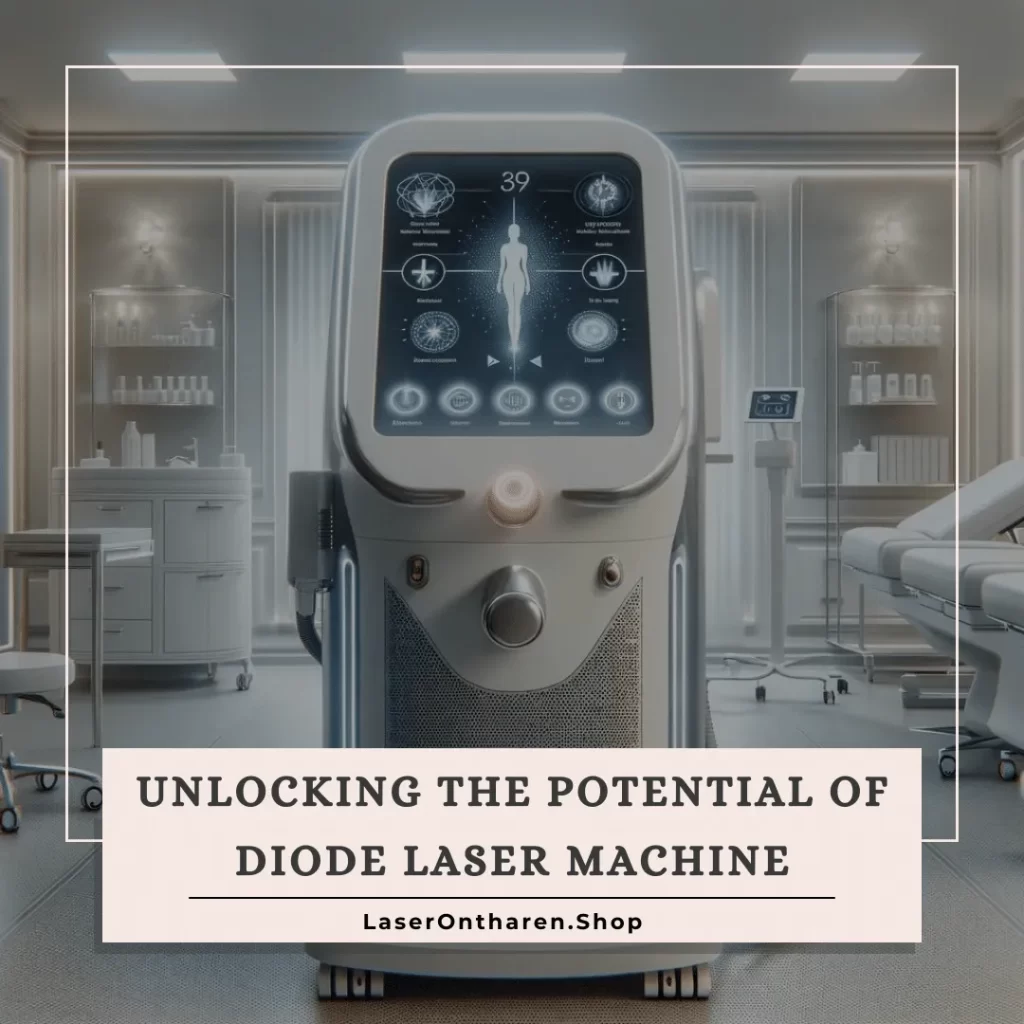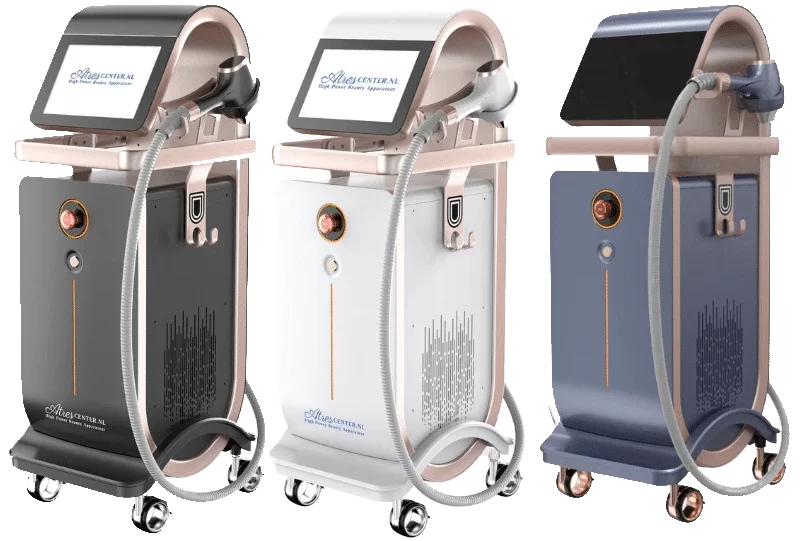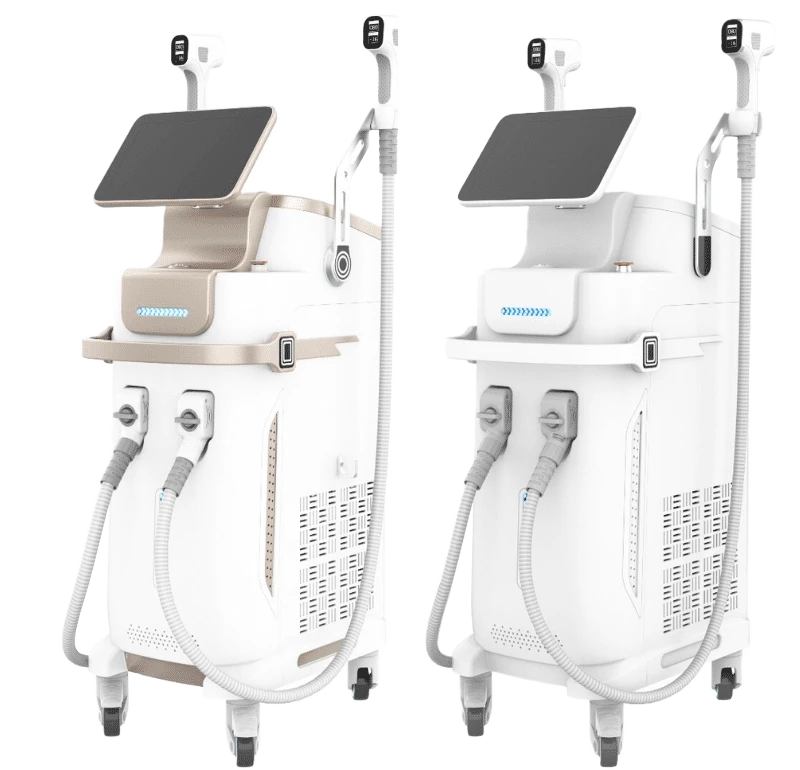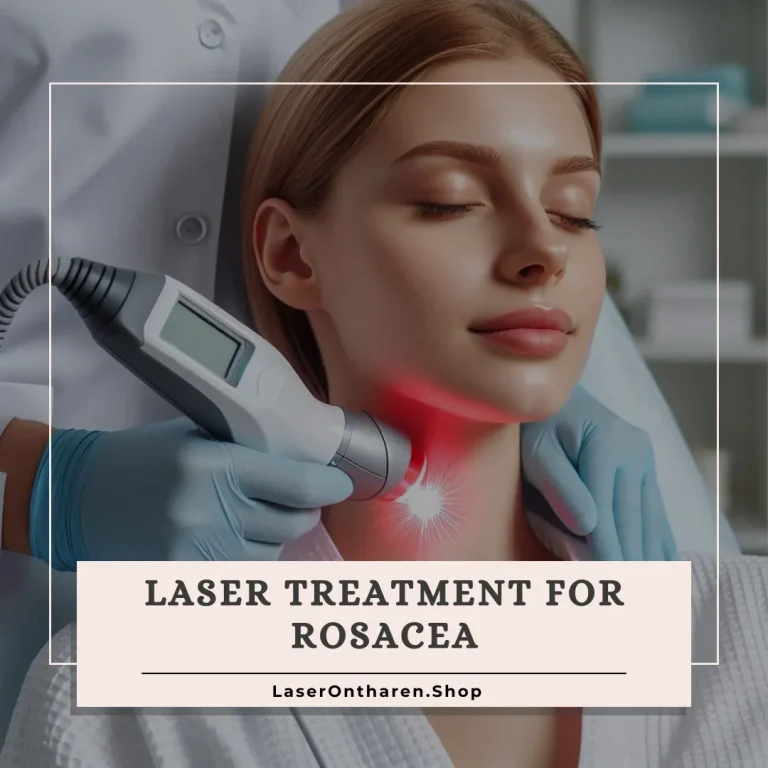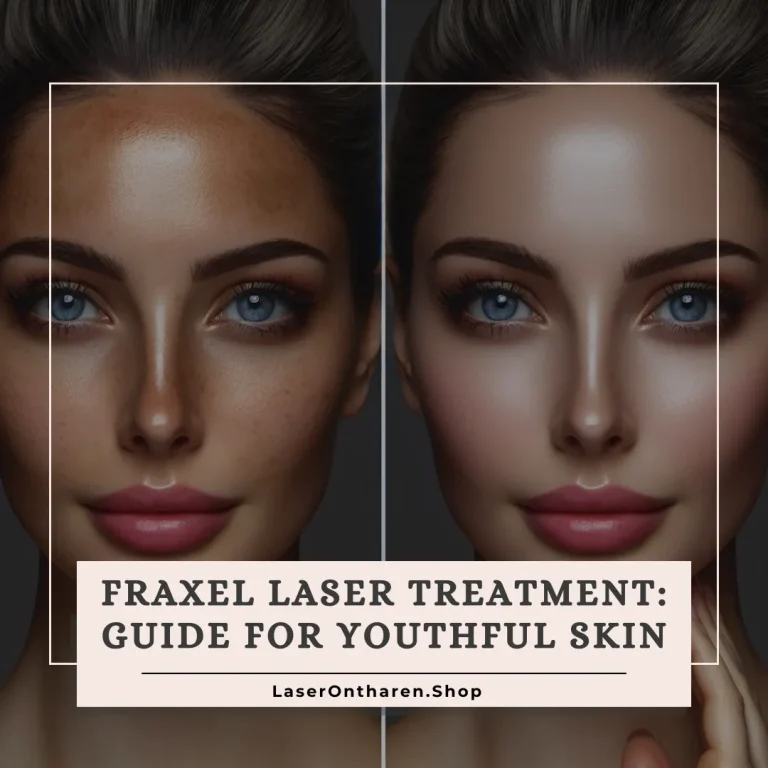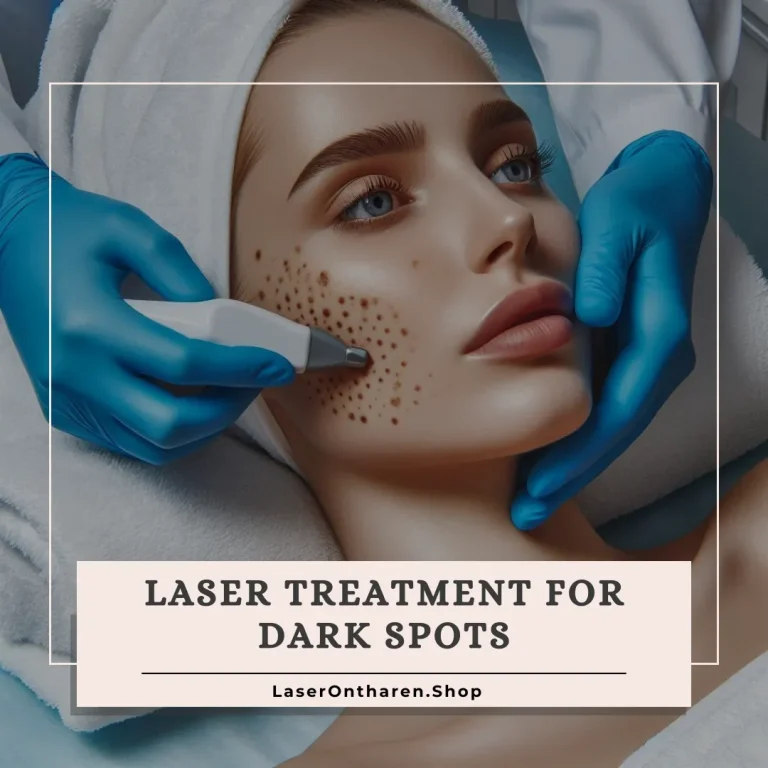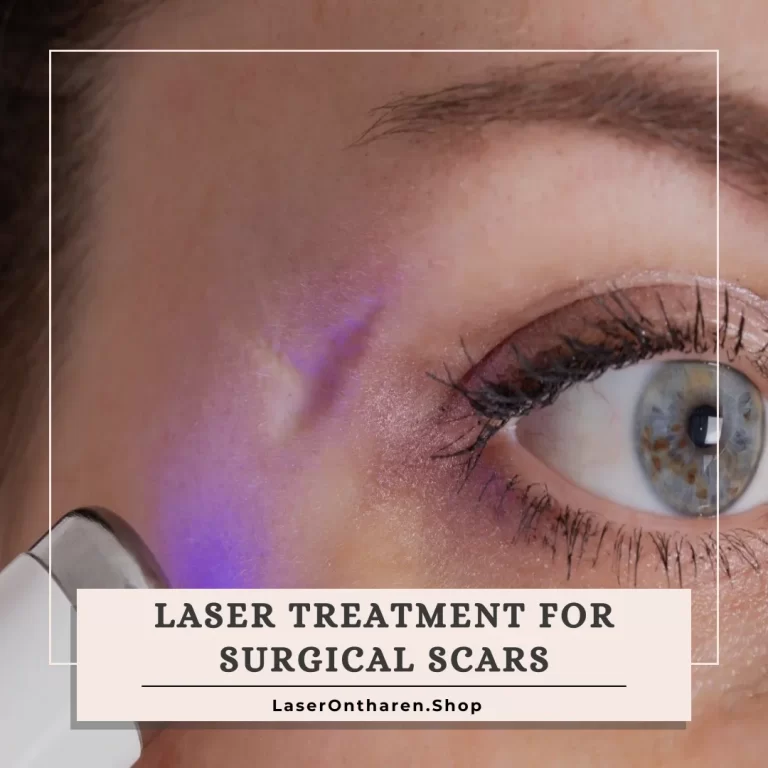In the ever-evolving landscape of medical and cosmetic treatments, laser technology has emerged as a cornerstone in providing advanced solutions for skin care, hair removal, and various aesthetic improvements.
Among the myriad of options available, diode laser machines stand out for their efficiency, versatility, and innovative approach to non-invasive treatments.
This introduction aims to shed light on the significance of diode lasers within the industry, touching upon their role in revolutionizing both the medical and aesthetic fields.
Diode lasers employ semiconductor technology to produce coherent light, which is highly effective in targeting specific tissues in the skin without damaging surrounding areas.
This selective precision makes diode laser machines highly sought after by dermatologists, cosmetic surgeons, spa and salon owners, and even patients seeking safe and effective treatment options.
Their applications range from hair removal to skin rejuvenation, offering a non-invasive alternative to traditional surgical procedures.
How Diode Laser Machines Work
Understanding the technical workings of diode laser machines is essential for professionals aiming to incorporate this technology into their practice, as well as for individuals curious about the science behind their treatment.
At its core, a diode laser consists of a semiconductor that emits a narrow-spectrum light when electric current is passed through it.
This light can be precisely controlled to target specific chromophores in the skin, such as melanin or hemoglobin, allowing for targeted treatment applications.
The key distinction between diode lasers and other laser types, like Nd:YAG or Alexandrite, lies in their wavelength.
Diode lasers typically operate in the 800 to 810 nm range, which allows for deeper penetration and the ability to treat a wider range of skin types with reduced melanin absorption.
This makes diode lasers particularly effective for hair removal and skin treatments, providing a balance between efficacy and safety not always achievable with other laser technologies.
Applications of Diode Laser Machines
Diode laser machines have a broad spectrum of applications, demonstrating their versatility and effectiveness in both cosmetic and medical treatments.
Among the most popular uses is laser hair removal, where diode lasers excel due to their ability to target and destroy hair follicles with high precision, resulting in long-lasting hair reduction.
Skin rejuvenation is another significant application, where the laser stimulates collagen production, improving skin texture, reducing wrinkles, and diminishing the appearance of scars and pigmentation.
Diode lasers are also employed in treating vascular lesions, such as spider veins, by targeting the hemoglobin in the blood vessels without affecting the surrounding tissues.
Less common but equally impactful applications include treatment for acne, where the laser’s anti-inflammatory properties can significantly reduce breakouts, and nail fungus treatment, showcasing the diode laser’s ability to target and eliminate fungal infections beneath the nail bed.
Benefits of Diode Laser Treatments
Diode laser treatments stand out in the realm of cosmetic and medical procedures for several compelling reasons.
The primary advantages include:
Efficiency and Effectiveness: Diode lasers are highly efficient in targeting the chromophores such as melanin or hemoglobin, making treatments like hair removal and vein reduction more effective. The ability to adjust parameters allows practitioners to customize treatments based on individual patient needs, enhancing outcomes.
Safety Profile: With their precise targeting capabilities, diode lasers minimize the risk of damage to surrounding tissues. This precision, combined with adjustable wavelengths, ensures a safer treatment experience for patients across a variety of skin types.
Comfort During Treatment: Advances in diode laser technology have significantly improved patient comfort during procedures. Cooling mechanisms and shorter treatment times reduce discomfort, making it a preferred choice for both practitioners and patients.
Suitability for Various Skin Types: Unlike some laser technologies that are limited by skin type or color, diode lasers can be effectively and safely used on a broader range of skin types. This inclusivity broadens the potential patient base for practices offering diode laser treatments.
Choosing the Right Diode Laser Machine
Selecting the appropriate diode laser machine is critical for ensuring the success of treatments offered by a practice.
Got any questions about High-Power Diode Laser Ice Pro A+?
Got any questions about High-Power Diode Ice Laser Maxx – Double Lever?
Consider the following factors when evaluating options:
Wavelength: The wavelength of a diode laser affects its penetration depth and efficacy for different treatments. Machines offering adjustable or multiple wavelengths provide greater versatility.
Power: The power output of the laser impacts its ability to deliver effective treatments. High-power machines can reduce treatment time and increase efficacy but require careful handling to ensure patient safety.
Size and Portability: Depending on the practice’s space and the types of services offered, the physical size of the machine and its portability may be important considerations.
FDA Approval: Ensuring that a diode laser machine has FDA approval is crucial for both safety and regulatory compliance. This approval indicates that the machine has been thoroughly tested and deemed safe for use.
Top Models in 2024: Researching and comparing the top diode laser machines available in 2024 can help practitioners make informed decisions. Reviews, clinical studies, and peer recommendations are valuable resources for assessing the best options on the market.
Tips for Practitioners: Beyond technical specifications, practitioners should consider the manufacturer’s reputation, warranty, and customer support. Demonstrations and training provided by the manufacturer can also be critical for ensuring successful implementation of the technology.
Cost Considerations and ROI
Investing in a diode laser machine involves evaluating both the initial purchase cost and the ongoing operational expenses.
While the upfront cost can be significant, the efficiency and range of treatments offered by diode lasers can lead to a strong return on investment (ROI) for practices.
Factors to consider include:
Initial Investment: The cost of diode laser machines varies widely based on specifications and capabilities. Financing options or leasing arrangements may make acquisition more accessible for some practices.
Operational Costs: Consumables, maintenance, and training are ongoing costs associated with operating a diode laser. Choosing a machine with lower consumable costs and reliable performance can help manage these expenses.
Potential ROI: Incorporating diode laser treatments can attract a wider clientele and allow practices to offer a broader range of services. Effectively marketing these services to highlight their benefits can help maximize the ROI.
Safety and Regulations
Ensuring the safety of both patients and practitioners during diode laser treatments is paramount.
As with any medical device, stringent safety measures and adherence to regulatory standards are essential to mitigate risks and protect all parties involved.
Safety Measures for Practitioners and Patients: Proper training for practitioners is the first step in ensuring safety.
Understanding the operation of the laser machine, including its settings and safety features, is crucial.
For patients, wearing protective eyewear is mandatory to prevent retinal damage.
Additionally, practitioners should conduct thorough consultations to assess patient history and skin type, ensuring that the treatment parameters are customized for safety and efficacy.
Regulatory Compliance: In the United States, the Food and Drug Administration (FDA) regulates the use of laser devices, including diode lasers, for medical and cosmetic purposes.
Compliance with FDA regulations not only ensures the safety and efficacy of the treatments but also instills confidence among patients.
Manufacturers must obtain FDA clearance for their devices, proving that they are safe and effective for their intended uses.
Practitioners should verify that any diode laser machine they consider is FDA-approved or cleared for the specific treatments they plan to offer.
International Standards: Beyond the FDA, international standards and regulations also govern the use of laser devices.
The International Electrotechnical Commission (IEC) sets safety standards for medical laser equipment, which are adopted by many countries. Compliance with these standards is essential for practices operating in or catering to an international clientele.
Future Trends in Diode Laser Technology
The field of diode laser technology is ripe with innovation, driven by relentless research and development efforts. Looking ahead, several trends are poised to redefine the capabilities of laser treatments, expanding their applications and enhancing their appeal to both practitioners and patients.
Advancements in Wavelength and Power: Ongoing research into optimal wavelengths and increased power settings promises to make diode laser treatments even more effective and versatile. Innovations in this area could open the door to treating a wider range of conditions and skin types with greater efficacy.
Portable and Compact Designs: As technology advances, diode laser machines are becoming more compact and portable, making them accessible to smaller practices and mobile services. This trend is likely to continue, expanding the availability of laser treatments to a broader audience.
Integration of AI and Machine Learning: Artificial intelligence (AI) and machine learning are beginning to make their mark on diode laser technology. These advancements could lead to smarter machines that automatically adjust settings based on skin type, treatment area, and desired outcomes, enhancing both safety and effectiveness.
Increased Focus on Patient Comfort: Innovations aimed at reducing discomfort during treatments, such as improved cooling systems and more precise laser targeting, are expected to enhance the patient experience. This focus on comfort can increase patient satisfaction and encourage more individuals to opt for laser treatments.
Emerging Applications: Researchers are continuously exploring new applications for diode laser technology, from treating neurological conditions to enhancing drug delivery through the skin. The versatility of diode lasers makes them a promising tool for a wide range of medical and cosmetic applications in the future.
Conclusion
Diode laser machines represent a significant advancement in the field of medical and cosmetic treatments, offering a combination of efficacy, safety, and versatility that is hard to match.
For practitioners, choosing the right machine involves considering a myriad of factors, from technical specifications to safety standards and potential ROI.
Meanwhile, staying abreast of safety regulations and emerging trends is crucial for maximizing the benefits of this technology for their practice and patients.
As we look to the future, the potential for further innovations in diode laser technology is vast.
With advancements in power, precision, and portability, along with the integration of AI and machine learning, diode lasers are set to become even more integral to medical and aesthetic treatments.
Whether for hair removal, skin rejuvenation, or groundbreaking new applications, diode laser machines continue to redefine the boundaries of what is possible, promising a brighter future for both practitioners and patients alike.
